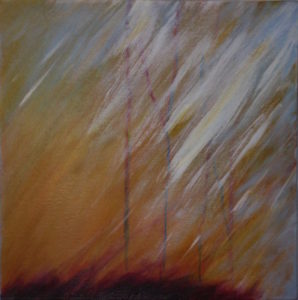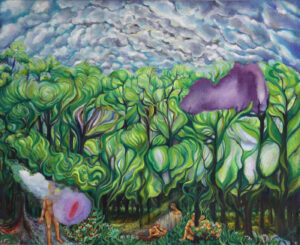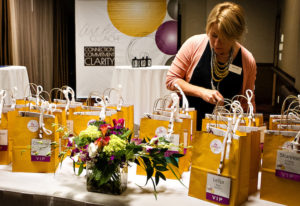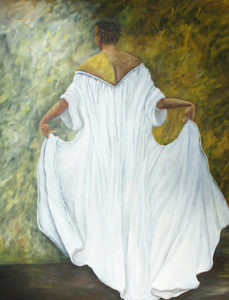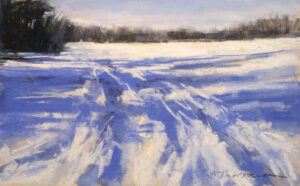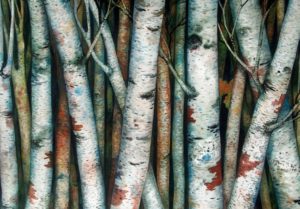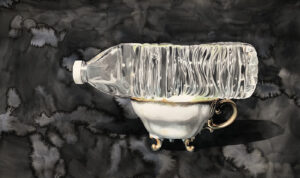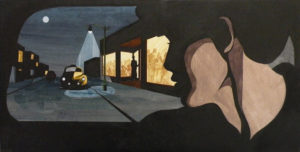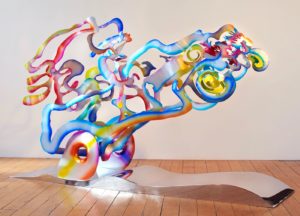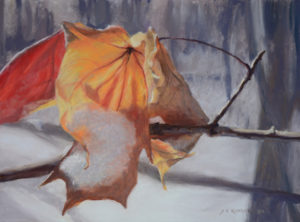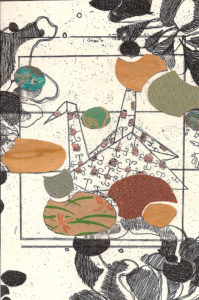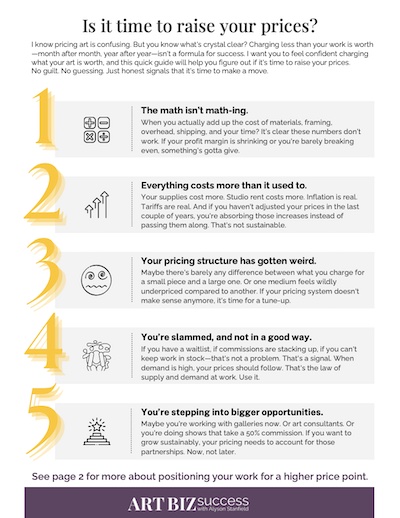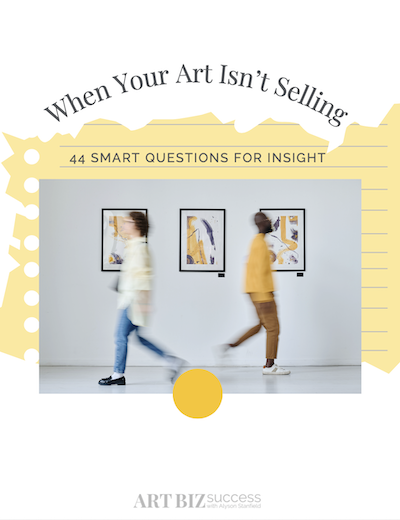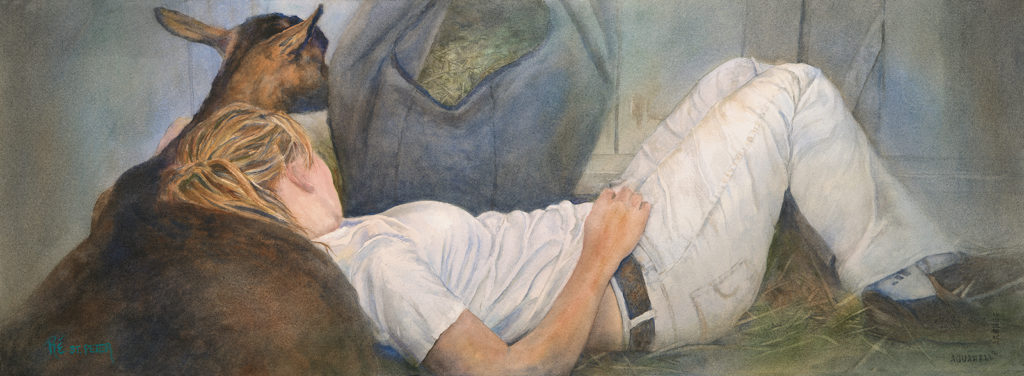
7 Ways to Wow with Your Exhibition Invitation
Every contact you have with someone is an opportunity to wow them with your art and your professionalism, so you don’t want to miss the chance to wow from the beginning.
Robert Mapplethorpe knew this. For his first solo exhibition in 1973 at New York’s Light Gallery – a show of Polaroids – Mapplethorpe’s invitation was a hand-printed image from a Polaroid original.
Mapplethorpe embossed his name on the outer edge, included the protective Polaroid cover, and inserted everything into hand-addressed, cream-colored Tiffany envelopes.
His invitation was a work of art in itself because, he believed, an exhibition doesn’t begin when you go to the opening, but when you receive the invitation.
The moment people hear about the show, they start judging. Will it be any good? Who else will show up? Is it worth my time? Is there something better I could do that night?
What experience do people have when they get an invitation from you?
Here are 7 ways to use your invitation to wow guests and set the tone for your exhibition.
Real Mail
1. Send it via post.
The simple act of putting a stamp on an envelope and dropping it into a mailbox automatically increases the prestige of your exhibition.
In these days of email reliance, almost anything you send real mail will get more attention than if it were sent via email.
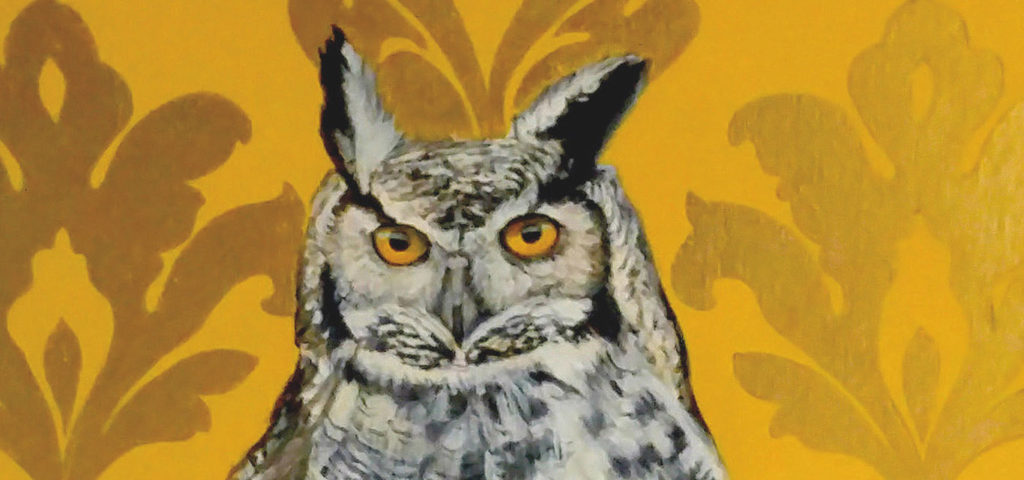
Why Putting Your Plan on Paper Matters
Since I started my art career, I had this one figure in my head that if I made that figure as my annual income, then I would consider myself successful. I also made this my Art Biz Accelerator income goal. Well, I just tallied up my annual income for 2018, and I EXCEEDED THAT FIGURE!!!!
I love seeing messages like this one from Sabra Lynne Crockett in my inbox, and I think it’s important for artists to see what is possible when you apply your knowledge.
She continued:
Before, I enrolled in the Art Career Success System, I was directionless. I was flitting from one project to another. Now I have a vision, and a plan to make it happen through actionable goals. Quantifying my accomplishments shows me that I’m not just spinning my wheels.
Before I even knew that the Art Career Success System existed, I had to get myself in the mindset that I was an artist. It took me almost two decades to declare that I was an artist, even though I made my living doing artistic things.
I always skirted around the idea. I would be asked, “Are you an artist?” I would say things like, “Well, no. I’m a decorative artist”, or,” I am a scenic artist.” I was limited by my own thinking. It was when I made the declaration to myself, and owned the label “artist” that the floodgates of opportunity opened up for me.
One of the opportunities that arose was enrolling in all four courses of the Art Career Success System.
ABS: What has made the biggest difference?
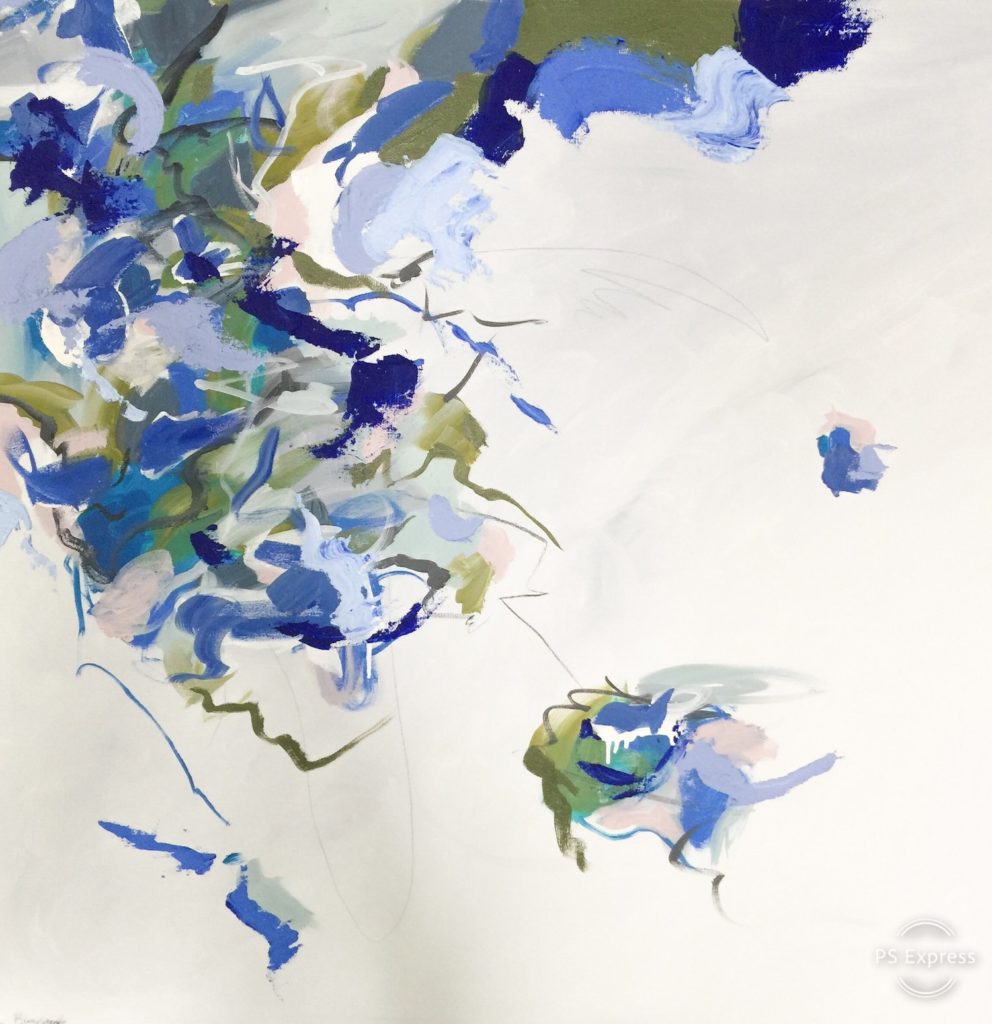
Why You Need a Sense of Urgency in Your Art Business
A number of years ago, I attended a mastermind meeting that had a consistent theme running through it.
The most successful people have a sense of urgency.
I believe this to be true because those I view as successful act quickly and decisively. They hustle. They get things done.
If we take it at face value, the phrase sense of urgency seems turbulent. It sounds like we should be moving hastily and acting immediately on ideas without much thought or care for anything else.
It’s Not Really About Hurrying
As I read more about a sense of urgency as it relates to business, I discover that it’s not necessarily about hurrying.
John Kotter, who wrote the book A Sense of Urgency, says the following.
True urgency focuses on critical issues. It is driven by the deep determination to win, not anxiety about losing. Many people confuse it with false urgency. This misguided sense of urgency does have energized action, but it has a frantic aspect to it with people driven by anxiety and fear. This dysfunctional orientation prevents people from exploiting opportunities and addressing real issues.
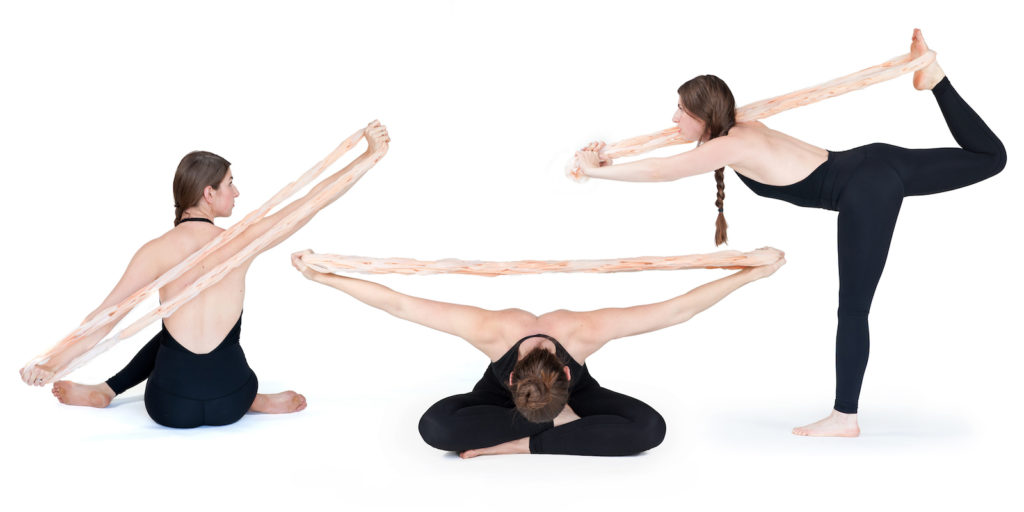
The Art Biz ep. 25: Caring for Your Most Precious Asset as an Artist with Missy Graff Ballone
Missy Graff Ballone, artist and founder of Wellness for Makers, joins the show to discuss the importance of taking care of your most precious asset for making art: your body.
She shares her own background as an artist, massage therapist and yoga instructor, and why she saw a need to provide resources that help artists take care of their bodies so they can make more art, and in turn, run their businesses. She also provides tools artists can use to get started in their new journey towards better health.
In this interview, you will hear Missy talk about:
- How she blended her background as an artist, massage therapist, and yoga instructor to motivate and empower artists through education, mindful living, and movement.
- Why she felt it important to teach artists accessible self-care to improve the longevity of their bodies, and ultimately their careers.
- How it’s never too late to invest in yourself and focus on the key assets—your body and health!
- The importance of creating extra variety in your movements in the studio.
- How we can become more consciously aware of the patterns we create within our bodies, and the most common ailments artists typically endure.
- Some gentle techniques and tools that she finds important and effective.
- The theme of resilience and how it relates to wellness for artists.
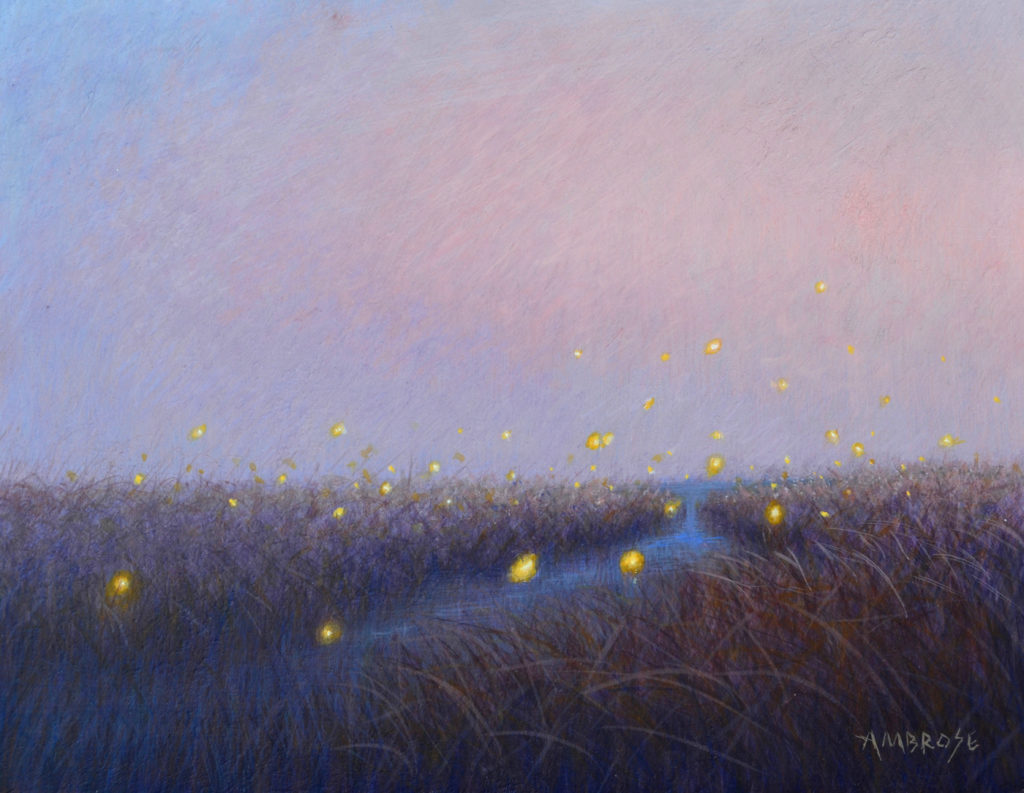
How to Decide Whether to Take on a New Project or Not
You are in charge of your art career.
This means you are the person who decides what to do immediately and what can wait for tomorrow, next week, or next month.
This sounded ideal until you realized how hard it is to prioritize your life and business by yourself.
You might have been accustomed to a boss telling you where to focus your energy. No more.
Entrepreneurship issued a wake-up call. You want freedom? Here it is! Go decide for yourself.
If you’re actively looking for opportunities, as you should be, there will be a time when you have more opportunities than you realistically have the bandwidth for. You’ll be hit with new invitations and requests from all corners.
But it’s unrealistic to involve yourself in every opportunity that comes your way.
Intellectually, you understand this. Emotionally, you want to believe you are somehow superhuman.
The projects might be exhibitions, commissions, licensing deals, wholesale contracts, teaching possibilities, separate jobs, or something else. They’re all projects that beg for your time, and they sound so exciting!
Your resolve is being tested by a voice that some people call a gremlin or troll. I call it The Tester.
How serious is she about this other project—really?
How good is he at knowing what he wants and needs?
All good entrepreneurs struggle with decisions in moments like these, especially if there is the potential for a big pay off at the end.
This is when you must ask yourself hard questions to help you answer the biggest question of all:
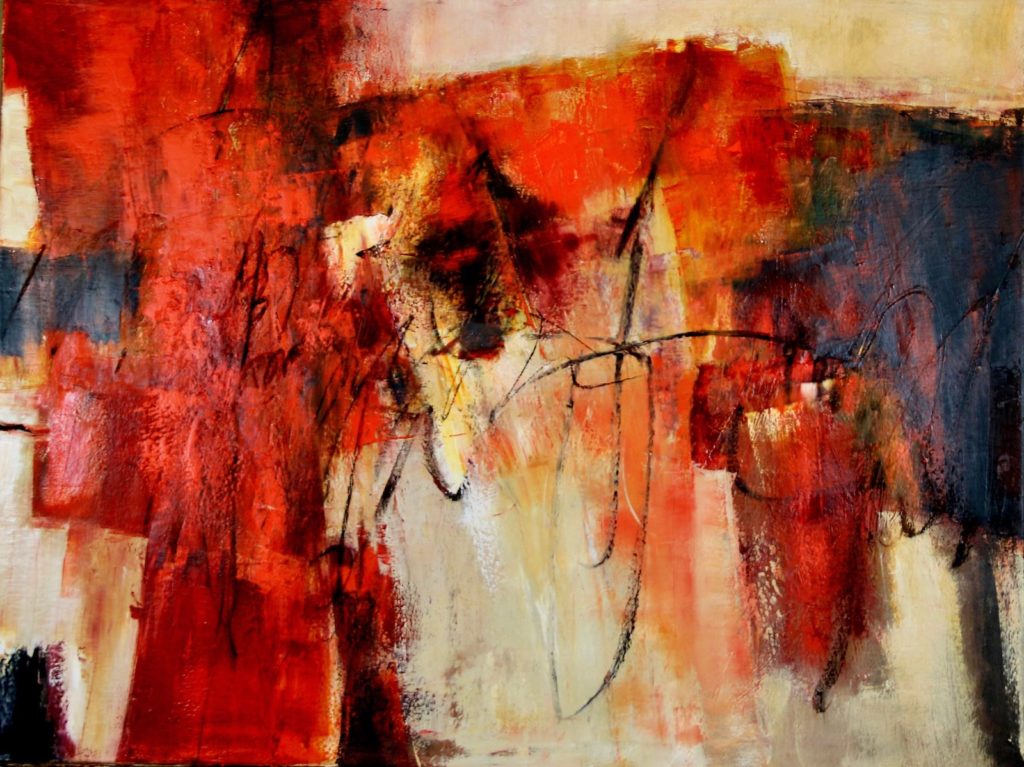
The Art Biz ep. 24: How to Be a More Confident Artist with Gwen Fox
Artist Gwen Fox describes a situation many artists have found themselves in.
You know the scenario. Your work was selected for a prestigious art show and during the show you happen to overhear a man talking about your work. As you listen, your heart sinks. He hates your painting.
The man then moves on to reveal his ignorance while commenting on several other paintings, yet what he said about yours has destroyed your confidence.
For the rest of the evening you don’t hear all the glowing remarks about your work. You keep replaying what the man said over and over in your mind. By bedtime your confidence in yourself and your art dwells in an empty vile hole.
Thoughts keep running through your mind. He was right, my work just isn’t good enough. Or … I knew down deep I wasn’t a real artist!
Your confidence has been stolen so now what can you do?
Lack of confidence is something we all struggle with at one time or another. In this episode of the Art Biz Podcast, you’ll hear guest Gwen Fox discuss this critical topic that sidelines so many artists at one point or another.

